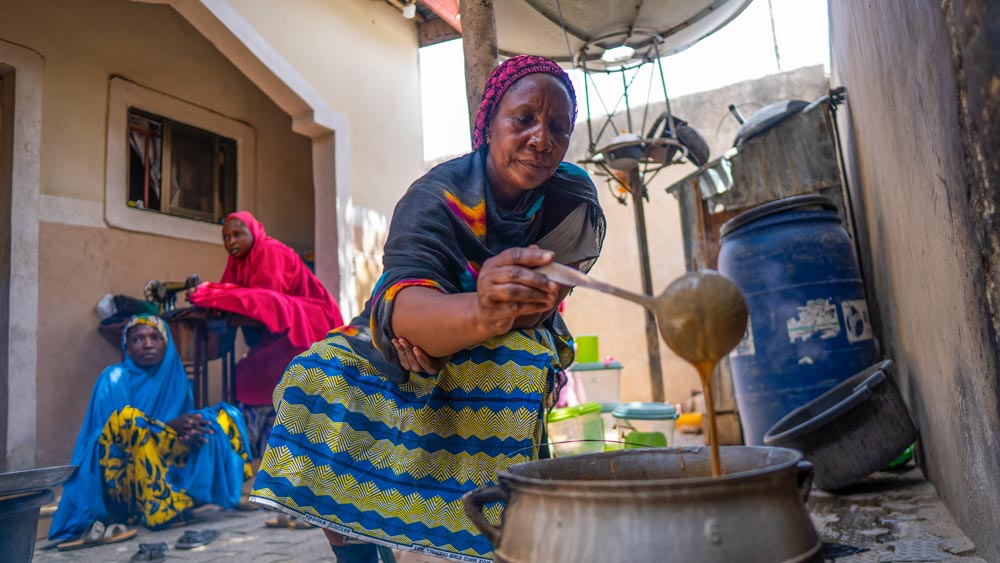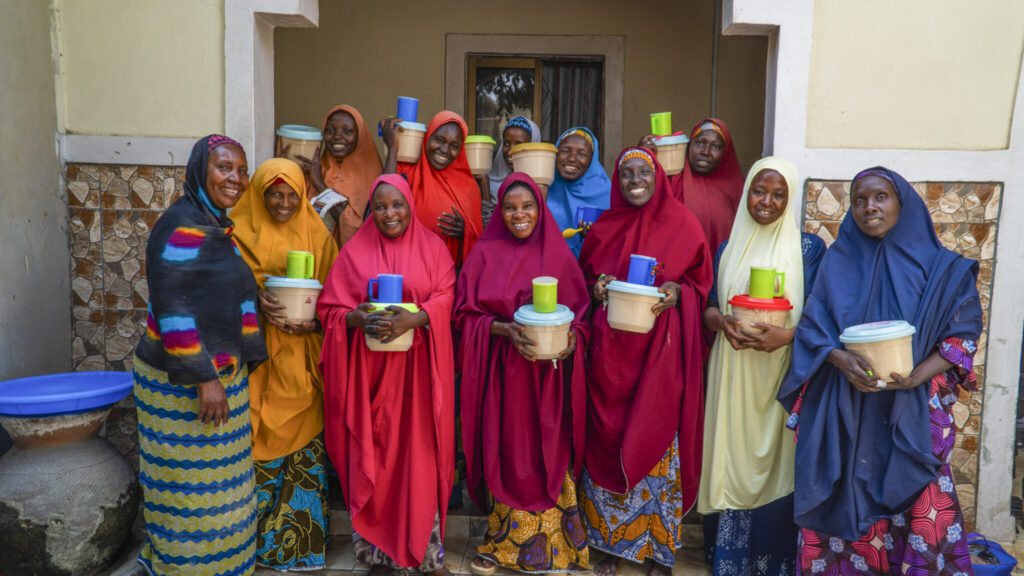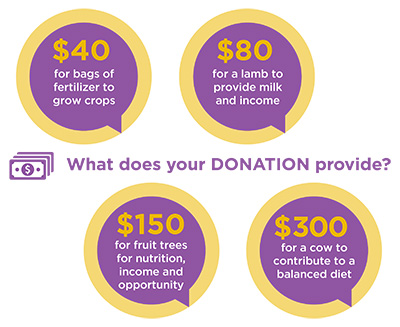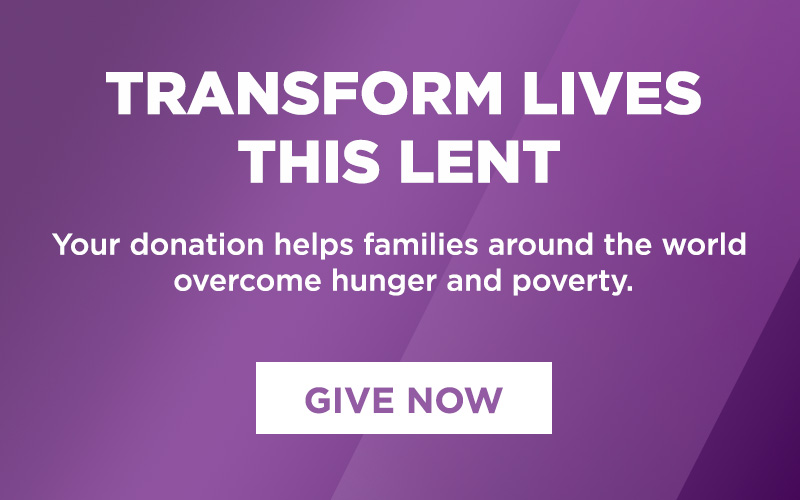Paying it Forward as a Lead Mother.
Amina Bukar, a mother of five, is a well-respected leader and small business owner in Muna Moforo, Nigeria. In her village nutrition group, she teaches mothers how to prepare nutrient-rich porridge for their children to help them grow strong and healthy. This is important because in Nigeria, more than 25 million people face extreme hunger and lack access to nutritious food. Amina makes regular house visits to families in her community to provide support and knowledge for leading healthy lives.
Amina and her family used to live in their hometown of Marte. She owned a chicken farm and a store. Her husband, Garba, worked for a water and land conservation agency. But in 2014, violence in their community forced them to flee their village.
“My husband placed me and the children in a pick-up truck and asked us to go my auntie’s house,” Amina says. “I left with just my purse, a small amount of money and the clothes on my back. I used to live well but suddenly, I lost everything. It affected me mentally.”

“I used to live well but suddenly, I lost everything.”
—Amina Bukar

After arriving in Muna Moforo, Amina and her family had to start life all over again. Amina joined a Catholic Relief Services program that provided food and cooking supplies. This enabled her family to eat healthy meals as they worked to rebuild their lives and find employment.
“Before we didn’t have the money to buy sardines or even eggs to eat well,” Amina says. Now, she and her family can prepare balanced meals, like eggs and yams for breakfast.
Amina started a food grinding business to earn income. She also began preparing specialty foods to sell in the market, like hibiscus drinks and gingerbread palm fruit. She earned enough money to support her family’s needs and now provides materials to other women to help them start their own businesses.
“[Amina] is always here, listening to the women and their concerns,” says Garba, her husband. Because of her supportive and caring nature, Amina was nominated to be a lead mother in her village. By empowering mothers and caregivers, she is helping her community overcome the challenges of hunger so they can thrive!

Support our global family through a lifechanging gift.
Your gifts to CRS Rice Bowl help families like Amina’s overcome the challenges of hunger and malnutrition. Make a gift that will transform lives and help communities thrive.



